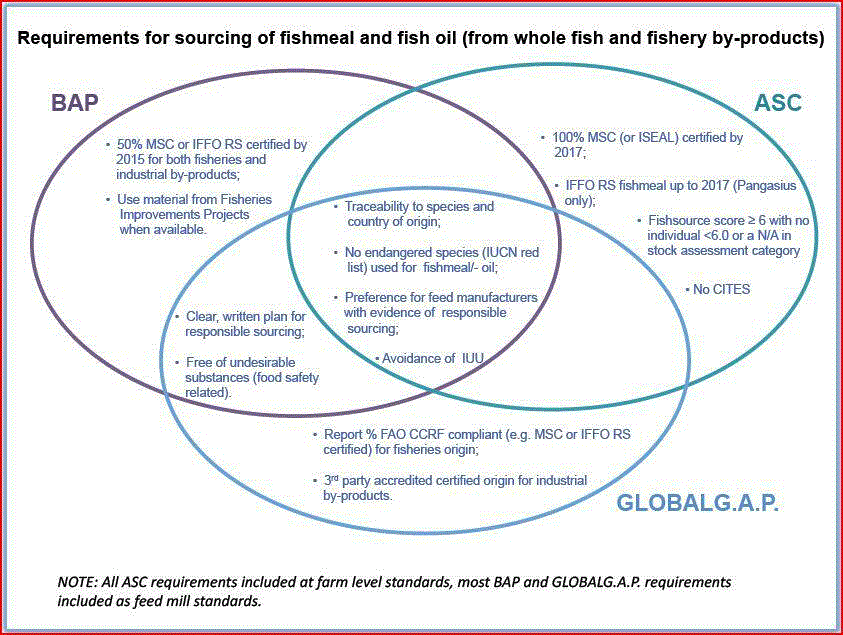A Memorandum of Understanding was signed on 23 April 2013 by the three standard setting organizations that identified a number of topics where collaborative action would create efficiencies and promote the uptake of our respective programs.
An early priority identified was to review how the standards address the sourcing of fishmeal and fish oil (FMFO).
These raw materials are important to the production of feed used for the farming of fish, crustaceans, pigs and poultry. Unfortunately, when sourced from fisheries that do not follow responsible management practices significant negative environmental impacts occur.
The following chart summarizes the current FMFO sourcing requirements of the three parties. It identifies the crosscutting elements that are covered in all three programs and from which feed manufacturers can choose to expand in order to meet one or more of these programs.

The identified common criteria are:
- Traceability to the species and, at least, to the country of origin.
- No use of material sourced from endangered species based on IUCN ?s red list.
- Avoidance of fish sourced from illegal, unreported and unregulated fishing (IUU).
- Preference for feed manufacturers with publicly available evidence of responsible sourcing, such as third-party certified sourcing of FMFO derived from fisheries and aquaculture, including FMFO derived from fish by-products.
Regardless of the certification program chosen and implemented, the aqua feed and livestock feed sector should apply the above common criteria as a minimum set of requirements when sourcing FMFO ingredients.
This will better promote the responsible sourcing of FMFO, for the benefit of the environment and the future sustainability of the fisheries and other FMFO-sources utilized by the aqua feed and livestock feed sectors.



